RPS has completed hot-fire testing of its Thrust Chamber Assembly (TCA), which operates on liquid oxygen (LOX) and gaseous methane or compressed natural gas (CNG). The TCA is the primary thrust component of our Centurion rocket engine. The test campaign included (102) cold flow and hot-fire tests to validate combustion performance, stability, and reusability across a full power range, from deep throttle at 10% up to 100%. Next up is turbopump and powerpack development.
Timelinebackup
Air Force SBIR Phase 1 – Low Cost, Single Staged Suborbital Rocket
Kent, WA – Rocket Propulsion Systems (RPS) LLC announces it has been selected by AFWERX for a SBIR Phase I contract in the amount of $54,136 focused on Low-Cost, Single Staged Suborbital Rocket to address the most pressing challenges in the Department of the Air Force (DAF). The Air Force Research Laboratory and AFWERX have partnered to streamline the Small Business Innovation Research (SBIR) and Small Business Technology Transfer (STTR) process by accelerating the small business experience through faster proposal to award timelines, changing the pool of potential applicants by expanding opportunities to small business and eliminating bureaucratic overhead by continually implementing process improvement changes in contract execution. The DAF began offering the Open Topic SBIR/STTR program in 2018 which expanded the range of innovations the DAF funded and now on January 10, 2025, RPS will start its journey to create and provide innovative capabilities that will strengthen the national defense of the United States of America.
About AFRL
The Air Force Research Laboratory is the primary scientific research and development center for the Department of the Air Force. AFRL plays an integral role in leading the discovery, development, and integration of affordable warfighting technologies for our air, space and cyberspace force. With a workforce of more than 12,500 across nine technology areas and 40 other operations across the globe, AFRL provides a diverse portfolio of science and technology ranging from fundamental to advanced research and technology development. For more information, visit afresearchlab.com.
About AFWERX
As the innovation arm of the DAF and a directorate within the Air Force Research Laboratory, AFWERX brings cutting-edge American ingenuity from small businesses and start-ups to address the most pressing challenges of the DAF. AFWERX employs approximately 370 military, civilian and contractor personnel at five hubs and sites executing an annual $1.4 billion budget. Since 2019, AFWERX has executed over 6,200 new contracts worth more than $4.7 billion to strengthen the U.S. defense industrial base and drive faster technology transition to operational capability. For more information, visit afwerx.com.
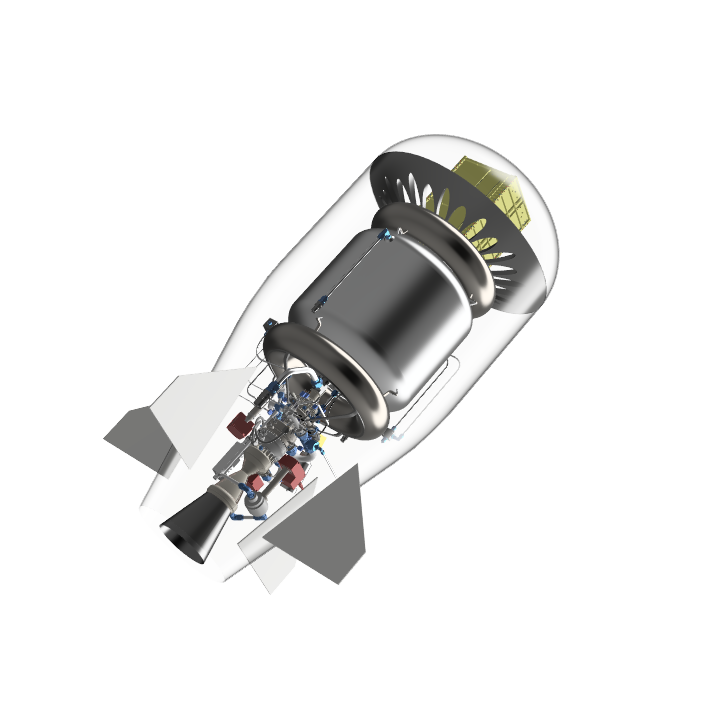
NSF TECP – Reusable Suborbital Rocket Development
RPS is delighted to have been awarded a $200K Technology Enhancement for Commercial Partnerships (TECP) grant from NSF for development of a reusable suborbital launch vehicle powered by the Centurion rocket engine. The rocket pursues dual-use goals as a commercial platform for low-gravity research and experimentation, and/or as a surveillance and reconnaissance mobile platform in tactically relevant contested and dynamic environments to achieve enhanced capabilities for the Warfighter.
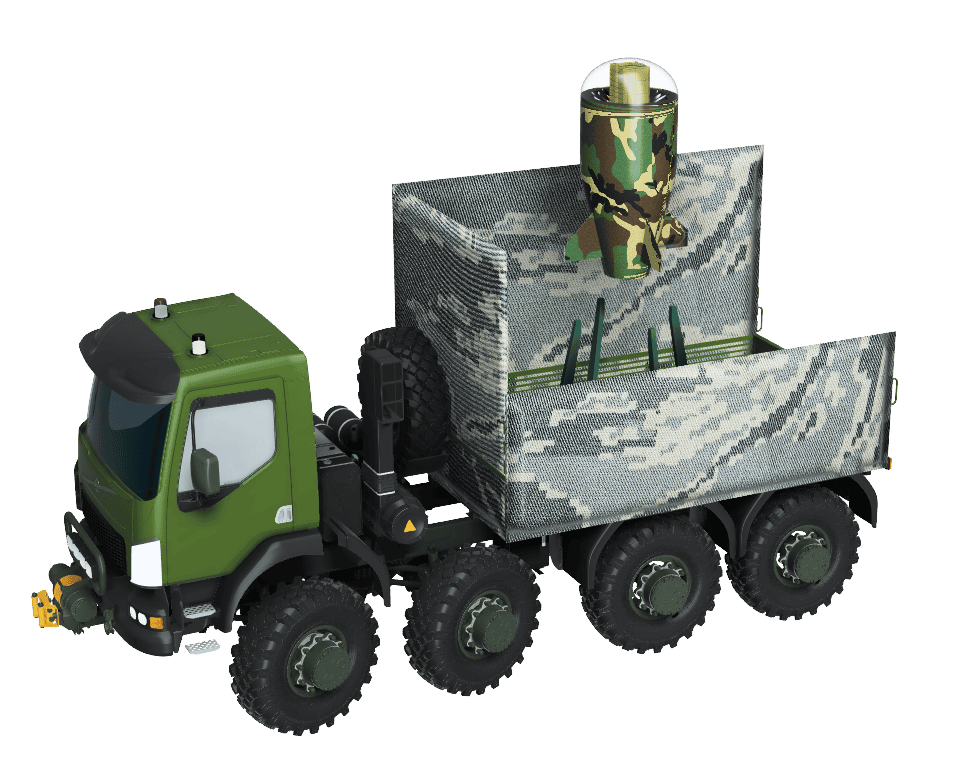
RPS Completes Preburner Testing for Centurion Engine
RPS completed hot-fire testing of its preburner today. The preburner operates on liquid oxygen (LOX) and liquid natural gas (LNG) propellants and is a critical power generation component of the Centurion staged combustion liquid rocket engine. The test campaign spanned (54) tests and validated preburner performance at full power, ability to deep-throttle to 25% power level, stability and reusability. We are moving on to thrust chamber hot-fire testing next!
Thrust Chamber Assembly undergoing hot-fire at Purdue University’s Zucrow Laboratories
Space Force SBIR Phase I – Low-Cost Orbital Transfer Vehicle
Kent, WA – Rocket Propulsion Systems LLC (RPS) announces it has been selected by SpaceWERX for a SBIR Phase I contract in the amount of $50,656 focused on Low-Cost Orbital Vehicle development to address the most pressing challenges in the Department of the Air Force (DAF). The Air Force Research Laboratory and SpaceWERX, the innovation arm of the U.S. Space Force and a unique division within AFWERX, have partnered to streamline the Small Business Innovation Research (SBIR) and Small Business Technology Transfer (STTR) process by accelerating the small business experience through faster proposal to award timelines, changing the pool of potential applicants by expanding opportunities to small business and eliminating bureaucratic overhead by continually implementing process improvement changes in contract execution. The DAF began offering the Open Topic SBIR/STTR program in 2018 which expanded the range of innovations the DAF funded and now on 15 May 2024, RPS will start its journey to create and provide innovative capabilities that will strengthen the national defense of the United States of America.
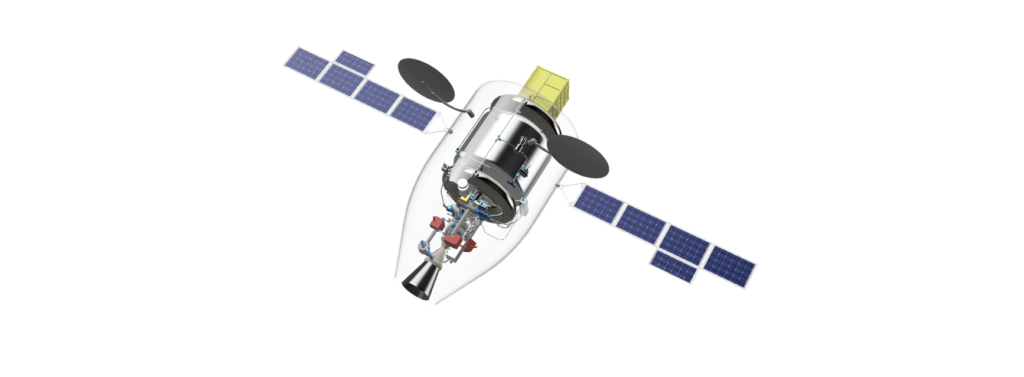
About SpaceWERX
As the innovation arm of the U.S. Space Force and a unique division within AFWERX, SpaceWERX inspires and empowers collaboration with innovators to accelerate capabilities and shape our future in space. Headquartered in Los Angeles, SpaceWERX employs 40 military, civilian and contractor personnel executing an annual $457 million budget. Additionally, SpaceWERX partners with Space Systems Command’s Commercial Space Office (COMSO) as a collaborative program. Since it was aligned under AFRL in Aug. 2021, SpaceWERX has executed 906 contracts worth more than $690 million to strengthen the U.S. defense industrial base and drive faster technology transition to operational capability. For more information, visit spacewerx.us.
About AFRL
The Air Force Research Laboratory is the primary scientific research and development center for the Department of the Air Force. AFRL plays an integral role in leading the discovery, development, and integration of affordable warfighting technologies for our air, space and cyberspace force. With a workforce of more than 12,500 across nine technology areas and 40 other operations across the globe, AFRL provides a diverse portfolio of science and technology ranging from fundamental to advanced research and technology development. For more information, visit afresearchlab.com.
RPS Graduates from NYU Stern’s Endless Frontier Labs
Rocket Propulsion Systems has graduated from the Endless Frontier Labs 2023-2024 cohort – one of 49 ground-breaking companies! It has been an incredible journey working alongside EFL mentors, NYU Stern MBA students, and the rest of the companies selected for the Deep Tech track.
Endless Frontier Labs (EFL), a program for early-stage science and technology-based startups at New York University Stern School of Business, is structured to optimize each startup’s chance of scaling into a successful company through a goals-based mentoring process. EFL mentors are experienced entrepreneurs who have built and exited successful companies, world-renowned scientists and technical experts, and well-known venture capital and angel investors.
Over nine months, EFL mentors work with admitted founders to set goals for the startups to accomplish and act as an informal advisory board to guide founders on how best to scale their businesses. Startups making progress are able to attract financing from investors in the program.
Consistent with its mission as a non-profit, EFL is a founders-first program and charges no equity or fees from participating startups. No NYU affiliation or relocation to NYC is required to participate. The program is appropriate for founders from around the world seeking deep connections to the thriving New York ecosystem or U.S. markets.
“Our mission is to bridge the gap between science and markets. We believe business strategy, validation by scientific peers, and connections to investors are critical for the successful commercialization of scientific breakthroughs. To that end, EFL provides founders access to an unparalleled network of business coaches, scientists, investors, and Stern MBA students to help transform their ideas into high-growth businesses,” said NYU Stern Professor Deepak Hegde, Founding Director of EFL.
More About EFL
Endless Frontier Labs (EFL) is a nine-month program at NYU Stern for early stage science- and technology-based startups. The program admits seed-stage startups from across the world (no NYU affiliation required). At the EFL, participating startups receive mentorship from an elite group of mentors, including successful entrepreneurs, investors, and scientists. EFL is free to all startups and does not take equity from participants. EFL graduate companies include Immunai, which is developing technology to reprogram the immune system for better detection and diagnosis of dreaded diseases; Shiru, which leverages precision biology to identify functional and nutritious protein ingredients to promote sustainable food production; Kintsugi, which is using voice biomarkers to detect mental disorders early; Stratyfy, whose proprietary machine learning products enables superior financial decisions while minimizing risk and mitigating bias; and C2i Genomics, a company that is transforming cancer diagnosis and treatment, among many others. From 2019-2023, 183 companies have graduated from the EFL. Of those graduates, 109 have collectively raised more than $1.7 billion in capital to fuel their ambitious missions.

NYU Stern / Endless Frontier Labs / 2023-2024 Cohort
We are thrilled to have been accepted into NYU Stern School of Business / Endless Frontier Labs (EFL) business accelerator, 2023-2024 Deep Tech cohort! EFL accelerates the success of early-stage science and technology based startups through a goals-oriented mentorship program, access to capital, support from NYU Stern’s top MBA students for business execution, and an opportunity to be a part of an exclusive network of EFL startups.

NSIN Vector – 2023 Cohort
We are excited to announce that RPS has been selected for the 2023 National Security Innovation Network Vector accelerator cohort. Over the next 10 weeks, our team will be working to develop dual-use applications of our low-cost “Centurion” rocket engine technology. We are excited to explore how our company might help address key national security priorities including Ukraine, strategic deterrence, and Joint All Domain Command and Control (JADC2).
NSIN is a program office in the U.S. Department of Defense, nested within the Defense Innovation Unit (DIU). NSIN is set up to collaborate with a wide variety of innovators to include universities, researchers, students, entrepreneurs and start-ups. NSIN creates opportunities for collaboration across communities and connect those that might not traditionally work in national security. Together, NSIN helps drive national security innovation and develop technologies that directly support the individuals responsible for protecting our country.
Vector seeks to identify and assist the next generation of dual-use ventures as they develop solutions supporting the U.S. Department of Defense (DoD). Vector gives participating teams the tools to pursue business opportunities with the government. NSIN Vector seeks to advance the development of early-stage ventures. The program welcomes companies that started in the commercial market and are interested in exploring the DoD market and companies that began in the DoD market and are seeking to grow.
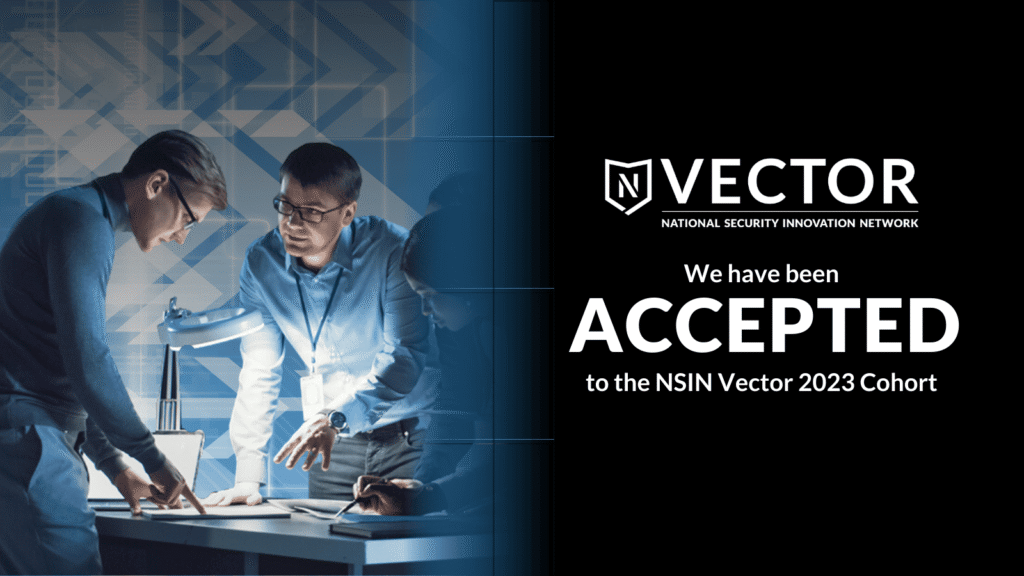
NSF SBIR Phase II – Centurion Rocket Engine Development
RPS team is honored to have won the $1M SBIR Phase II award from the National Science Foundation. In Phase II we will validate thrust performance, reliability, reusability, and scalability of the Centurion rocket engine we’ve developed in Phase I and lay the foundation for future engine production.
At $150K sales price, these engines will be the key to build low-cost small orbital rockets at $1.5M or less that can meaningfully compete with the ride-share option. The resulting small rockets could enter the market faster, fly more frequently, respond to defense calls more rapidly, and open a much wider room for customization of small-sat orbits and commercial space services. By enabling lower operational costs for small launch business, we believe Centurion engines will help move rocketry from the currently prevailing resource-intensive vertical integration model to a nimbler distributed specialization model built for the future proliferated space economy.
Special thanks to all our commercial, defense and local and federal government partners and collaborators that helped us get to this point – your input has been and remains invaluable!
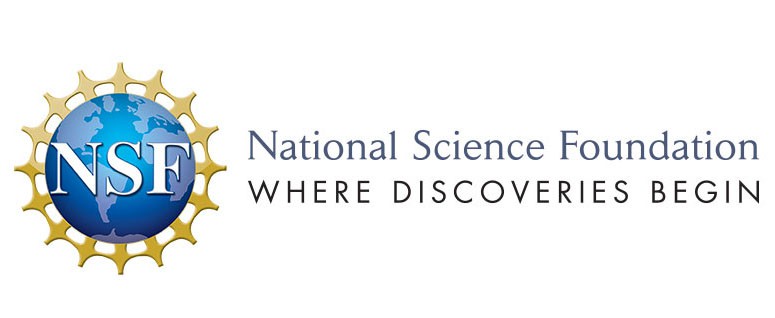
RPS Talks About New Space Trends and Their Impact on Advanced Manufacturing
RPS was delighted to participate in CAMPS innovation forum and share thoughts on current developments in space industry and how they could benefit the advanced manufacturers.
Watch here: https://www.youtube.com/watch?v=KL0yt0JtAtc
